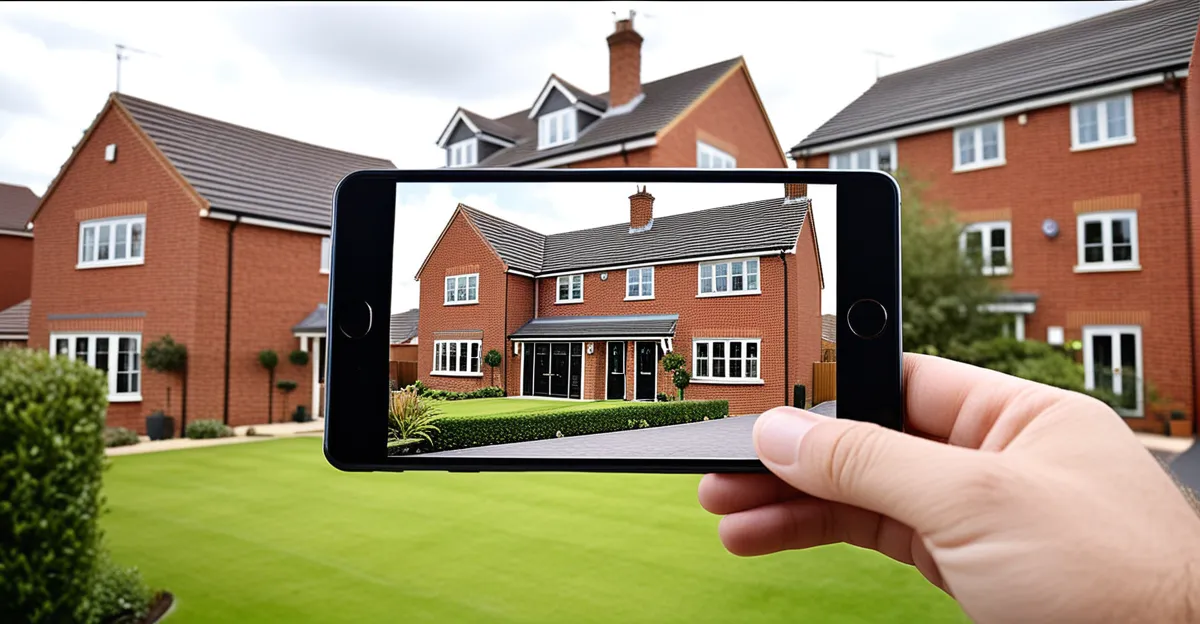Overview of Property Technology in the UK Real Estate Market
Property Technology, commonly referred to as PropTech, encompasses a range of digital innovations aimed at enhancing the efficiency and effectiveness of the real estate sector. In the UK, PropTech adoption is on the rise, with companies increasingly leveraging these technologies to streamline operations and improve service delivery.
PropTech includes a broad spectrum of tools designed to revolutionize the way properties are bought, sold, managed, and maintained. From sophisticated data analytics platforms to virtual reality property tours, the scope of PropTech is vast, impacting various aspects of the UK Real Estate market.
Have you seen this : What are the challenges of securing financing for UK real estate?
Currently, the adoption of PropTech in the UK is robust, driven by a demand for greater transparency and efficiency. Many real estate firms are embracing these advancements to gain a competitive edge, optimize their workflows, and enhance their customer experience.
The importance of PropTech in the modern real estate investment landscape cannot be overstated. It provides significant value by improving investment analysis through real-time data and predictive algorithms, thus enabling investors to make informed decisions. As the UK real estate market continues to evolve, the role of PropTech as a pivotal factor in investment strategy becomes increasingly prominent. This shift underscores the necessity for stakeholders to remain abreast of technological advancements shaping the future of the industry.
Also to read : How does UK real estate financing impact the national economy?
Key Benefits of PropTech for Real Estate Investments
PropTech offers transformative benefits to the real estate investment landscape, primarily through enhanced operational efficiency. Automation tools streamline repetitive tasks, allowing professionals to focus on strategic decision-making. This shift not only optimizes productivity but also enables real estate firms to handle a higher volume of transactions with increased precision.
A significant advantage of adopting PropTech is the potential for substantial cost savings. Smart technologies, such as energy management systems and predictive maintenance platforms, reduce overhead costs by minimizing resource wastage and unexpected repair expenses. These savings translate directly into more competitive pricing and increased profitability for property managers and investors.
Moreover, data-driven decision-making capabilities empowered by PropTech provide investors with the insights needed to make informed investment choices. Advanced data analytics tools process vast amounts of market data in real-time, offering predictions and trends that are invaluable for assessing potential investments. This results in reduced risk and a strategic edge in a highly competitive market. By leveraging these technologies, real estate investors can optimize their portfolios and enhance their financial returns.
Innovations in Property Technology
The realm of PropTech Innovations is a rapidly evolving landscape, introducing groundbreaking technology trends that are transforming the real estate industry. These innovations revolve around enhancing efficiency, improving data analysis, and fostering digital transformation.
One of the pivotal technologies revolutionizing real estate is artificial intelligence (AI). AI is being used to analyze vast datasets, offering predictive insights and automating mundane tasks. For instance, AI algorithms enable accurate property valuations by considering numerous market variables, thus providing real estate professionals with invaluable tools for decision-making. Additionally, big data analytics allow for the examination of consumer behavior patterns, which helps in tailoring marketing strategies more effectively.
Case studies of successful PropTech implementations illustrate the profound impact these technologies can have. A notable example is a UK-based real estate firm that leveraged AI-driven chatbots to enhance customer interaction, significantly improving client satisfaction and operational efficiency. These case studies showcase how AI and data analytics can seamlessly integrate into real estate operations, yielding impressive results in productivity and customer engagement.
Furthermore, digital transformation has facilitated virtual reality (VR) tours, offering prospective buyers immersive property experiences without physical visits. This innovation not only saves time but also broadens the potential buyer base by transcending geographical limitations.
As the PropTech landscape continues to expand, it remains crucial for real estate professionals to stay informed of these advancements and consider their potential applications. Embracing these innovations can lead to a significant competitive edge in the dynamic world of real estate.
## Essential Tools and Platforms for Real Estate Professionals
To harness the advantages of **Property Technology (PropTech)**, real estate professionals must familiarize themselves with essential tools and platforms tailored to the **UK Real Estate** landscape. These tools empower professionals to optimize investments and improve operational efficiency through technology.
**Popular PropTech platforms** include advanced data analytics, virtual property tour software, and property management applications. Such platforms are designed to streamline property transactions and management by offering features like automation of administrative tasks, comprehensive market analysis tools, and personalized customer interactions.
Choosing the right technology is pivotal. When comparing these tools, real estate professionals must consider their specific **investment goals** and operational needs. Some platforms prioritize **investment efficiency** through automation and analytics, while others focus on customer relationship management and seamless transaction processes.
Real estate investors should assess their strategy to select appropriate **PropTech solutions** that enhance decision-making, reduce costs, and improve client experiences. Understanding how each platform fits into their unique business model will ensure investments in technology yield the highest returns.
In an ever-evolving industry, adopting the right PropTech tools is not just advantageous—it's essential for maintaining a competitive edge in the UK’s dynamic real estate market.
Expert Opinions and Market Insights
In the ever-evolving realm of Property Technology (PropTech), gaining insight from industry leaders is invaluable for understanding its burgeoning impact on the UK real estate sector. Industry experts offer a unique perspective on how PropTech is reshaping investment strategies. For instance, Thomas Mason, a renowned analyst, emphasizes that the integration of PropTech platforms has facilitated a shift towards more sustainable practices and improved market analysis.
Recent PropTech insights reveal a surge in demand for tools that enhance investment efficiency. As noted by Clara Jenkins, a tech strategist, the prioritization of data analytics and automated systems is propelling the industry towards greater operational precision. This shift is echoed across various studies that predict significant growth in the implementation of smart technologies within real estate.
When it comes to market analysis, the consensus among industry experts indicates a robust future for PropTech investments. The alignment of technological advancements with traditional real estate practices is emerging as a pivotal factor in determining the competitive dynamics of the industry.
Overall, staying abreast of these insights and expert opinions is crucial for real estate professionals aiming to capitalize on the transformative potential of PropTech while navigating the challenges of an evolving market landscape.
Real-Life Case Studies from the UK
Delving into real-life case studies of PropTech success within the UK real estate market uncovers valuable insights into effective technological implementation. These examples spotlight how diverse PropTech solutions have been instrumental in reimagining the operations of leading firms in the industry.
One notable instance is a prominent UK property developer that integrated smart technologies to enhance energy efficiency across its portfolio. By adopting advanced energy management systems, they successfully reduced operating costs while simultaneously promoting environmental sustainability. This move not only met regulations but also appealed to eco-conscious investors, showcasing PropTech’s role in aligning business goals with sustainability.
Moreover, a London-based real estate firm employed virtual reality tours to expand its buyer base beyond geographical constraints. This innovative approach allowed international buyers to experience properties remotely, broadening potential market reach and accelerating transaction times. The significant uptake of this technology demonstrated the capability of PropTech to break traditional barriers in real estate commerce.
From these examples, it’s clear that successful PropTech implementation hinges on aligning technological advancements with specific business objectives. Lessons learned include the importance of integrating user-friendly platforms and investing in staff training to maximize effectiveness. As PropTech continues shaping the UK real estate landscape, these case studies serve as blueprints for harnessing digital tools to achieve business success.
Future Trends in Property Technology
As we look toward the future of Property Technology (PropTech) in the UK Real Estate market, it’s clear that ongoing technological evolution will continue to reshape the industry. One of the most anticipated advancements is the integration of sustainability into PropTech solutions. With increased pressure to minimize carbon footprints, future technologies will likely focus on enhancing energy efficiency in properties, promoting eco-friendly practices, and aligning with sustainability goals.
Trends in Real Estate also indicate a growing focus on enhancing user experiences through smarter platforms. This could involve more personalized and intuitive property management systems that cater to the specific needs of clients and investors, providing tailored insights and recommendations.
However, as these technologies evolve, they bring forth new challenges for real estate investors. Ensuring data security and maintaining privacy in increasingly digital operations will be critical. Additionally, adapting to rapid technological changes may require continuous learning and flexibility from professionals in the field.
In conclusion, staying abreast of these trends will be essential for real estate professionals looking to maintain a competitive edge. Those who proactively adopt emerging technologies will be better positioned to capitalize on opportunities and mitigate potential risks in the dynamic PropTech landscape.







